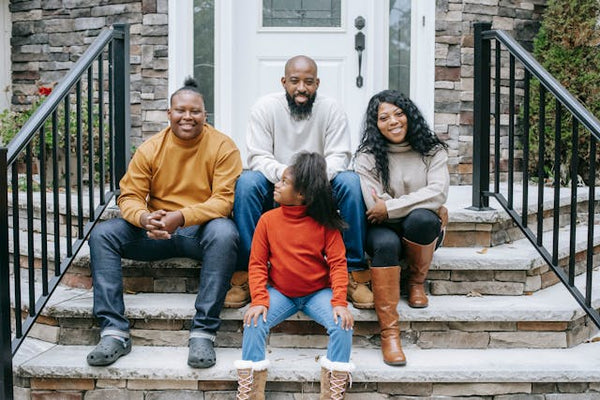5 Practical Tips For Building Good Character In Kids

As parents, caregivers, and educators, we all want to see our children grow into individuals who exhibit good character. Frustratingly, though, teaching traits such as honesty, loyalty, and kindness can sometimes feel like an uphill battle. Thankfully, there are practical and effective ways to incorporate character skill-building into your daily routines. Let’s take a closer look at a few tips from the Boys & Girls Club of America for building moral character in children and helping them become the best versions of themselves.
Modeling Good Character: A Powerful Influence
While your first instinct may be to simply Google “best books for building character in young children,” one of the most potent ways to shape a child's character is by modeling the traits you wish to see in them. Demonstrating acts of care, responsibility, and resilience allows young minds to witness firsthand what good character looks like. Don't shy away from letting them see you navigate challenges, apologize for mistakes, and persist in the face of difficulty. Showing vulnerability in age-appropriate situations teaches them the power of imperfection and empowers them to make sound decisions.

Teaching Good Character Through Stories: A Journey of Moral Development
Stories have a unique ability to convey life lessons, making them an excellent tool for character development. Engage your children with books, whether it's picture books for the younger ones or chapter books for older youth. Reading alongside them and discussing the characters' journeys can deepen their understanding of good character traits. Don't underestimate the power of comics and graphic novels, which not only showcase positive traits but also enhance literacy skills. Audiobooks during car rides or chores present another opportunity to immerse your family in tales of character growth.
ANB Baby Recommends Slumberkins

Offering Positive Reinforcement to Build Good Character
Acknowledging and praising your child when they exhibit positive behavior reinforces good character traits. Be specific in your praise, highlighting the exact behavior and connecting it to a positive character trait. For example, saying, "I saw how you helped your sister set the table this evening; that was very kind," not only reinforces the behavior but also links it to the virtue of kindness, boosting your child's self-esteem.
Even when correction is necessary, frame it in a way that focuses on growth. Questions like "What could you have said that would be more respectful?" or "How would being honest next time make your friend feel?" provide opportunities for your child to reflect on their actions and understand the consequences.
Engaging in Open Conversations About Good Character: Cultivating Awareness
While modeling and storytelling lay the foundation, engaging in conversations about good character traits is equally important. Take the time to discuss what your child has observed, asking questions like, "How did their actions affect others?" or "How did that character grow and change from the beginning of the story to the end?" These conversations draw attention to the qualities you want them to embrace and help them comprehend the significance of these traits in their lives.

Five Ways to Build Character: Practical Tips from the Boys & Girls Club of America
- Model good character: Demonstrating acts of care, responsibility, and resilience.
- Teach through stories: Engage children with books and narratives that exemplify positive character traits.
- Have open conversations about character: Foster dialogues about observed behaviors and character growth.
- Offer positive reinforcement: Recognize and praise children for displaying positive behavior.
- Engage in family practices: Participate in activities that reflect your values and encourage shared experiences.
ANB Baby Recommends Slumberkins

Nurturing Good Character for a Brighter Future
Building character in children is a continuous process that begins early in a child's life. By incorporating character-building values into your family's routine, openly discussing positive traits, and providing opportunities for your children to practice these traits, you lay the foundation for a future filled with good character and positive contributions to the world. As parents, you have the power to shape not only your child's character but also the character of generations to come. Embrace the journey of nurturing good character in your kids, and watch them flourish into compassionate, respectful, and resilient individuals.

